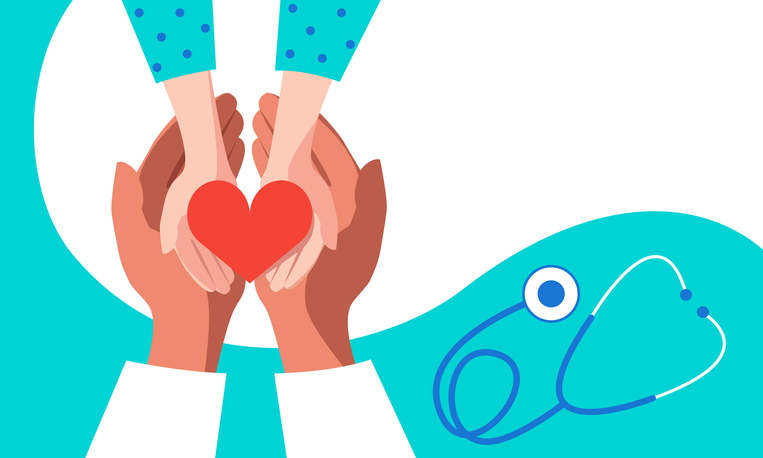A Summer with Dr. Lutey: Shadowing Her Work for the Underserved

Today’s post is about a special doctor I had the privilege of shadowing this summer.
“Yeah! Summer is here!” That was my first thought after surviving the intense workload at the end of my junior year, filled with final exams, AP tests, and a big English paper. I felt relieved yet a bit anxious about the upcoming summer, packed with academic camps, out-of-state soccer ID sessions, and an internship at a lab in a medical school. But one thing I was truly looking forward to was the chance to shadow Dr. Barbara Lutey.
I always had a high standard for what it means to be a dedicated physician. Since I was a kid, I’ve looked up to my grandmother, who devoted her life to her patients until she passed away at the age of 88. Once I lived in her house in Tokyo for nine months, I watched her closely—her strict daily routines to stay in peak condition and her dedication at the clinic, where she greeted patients with compassion. Dr. Lutey became another role model for me of what true service looks like. At pro bono clinics, she sees patients who are low-income, uninsured, or underinsured, including unhoused individuals. Although I couldn’t join her in these clinics because I wasn’t yet 18, I was allowed to observe her consultations with patients in need.
I grew up around medicine—through my grandmother’s clinic, my father, and many relatives in the field—, and I’ve been exposed to healthcare settings from an early age. But I had never seen anything like Dr. Lutey’s place. There were no nurses, no equipment, no walls—just an open warehouse with a small desk and two chairs, one for Dr. Lutey and one for her patient.
My First Day with Dr. Lutey
Let me take you through my experience on the first day.
Before my first visit, Dr. Lutey told me we’d meet at the metro station on the medical campus and head to the clinic together downtown. I’d never taken the metro (a subway/train system in St. Louis) before since my family always drives, and public transportation isn’t as common here as it is in big cities like NYC in the US or in Japan. In those areas, everyone uses trains and buses to commute, but in St. Louis, using public transit can feel intense or even uncomfortable, especially outside busy times like baseball game days. While taking the metro and chatting with Dr. Lutey, I felt a bit nervous about how this experience would go.
That first day exceeded my expectations. It was intense. Dr. Lutey saw multiple patients, but two cases stood out: both patients had been affected by gun violence. One had been hit in the head with the handle of a gun, causing serious bleeding, and the other was there for a follow-up on a gunshot wound. For someone who had never personally encountered people affected by gun violence, it was shocking to witness the reality of their situations.
Why Pro Bono Clinics are Essential
Because these patients often lack medical insurance, it is difficult for them to access proper healthcare. In the U.S., without insurance, medical care can be incredibly expensive. One doctor visit for a consultation can easily cost a few hundred dollars without insurance. If you are examined and take an X-ray, it would easily exceed several hundred dollars. Clinics like Dr. Lutey’s are rare, providing affordable care to people often overlooked.
During my summer experience at Dr. Lutey’s clinic, where she focused on consultations rather than direct patient care, I observed her dedication to assessing patients’ needs and connecting them to affordable, subsidized services. She followed up with other physicians to ensure her patients received the necessary care. This level of coordination went beyond a simple referral—it’s about making sure that her patients get the best possible outcomes.
On our way back to the medical campus, we took the bus—another new experience for me in St. Louis. With Dr. Lutey, I felt safe, and I asked her many questions I couldn’t ask in front of patients. One question was why patients came to her clinic instead of the ER. She explained that many unhoused people distrust the medical system due to past experiences where they felt they hadn’t received adequate care. She emphasized the importance of having the clinic downtown, as she believed going to them instead of having them come to her was an easier way to treat the unhoused.
Dr. Lutey’s Journey and Drive to Serve
Dr. Lutey’s journey to becoming a doctor was truly inspiring. She was a librarian at a government health agency called NIH before pursuing medicine. She studied hard to pass the MCAT (a standardized test required in the US to apply to a medical school) and attended medical school in her late 30s. I learned that during her internal medicine residency, she met a diabetic patient with severely low blood sugar. The woman’s refrigerator held only walnuts, bacon, and a half-empty soda, which were her entire food supply for several days due to a lack of money. This experience taught Dr. Lutey the importance of seeing patients as whole people, with challenges and needs beyond the exam room. It was a defining moment for her, fueling her commitment to serving the underserved. Today, as a physician in internal medicine and pulmonology, in addition to her regular work in the hospital, she dedicates time to pro bono clinics and a consultation clinic funded by federal grants, providing much-needed medical service and consultation in underserved areas of St. Louis.
Throughout the summer, I continued shadowing Dr. Lutey 1-2 times a week. I learned that she had a network of doctors supporting her pro bono initiative. Everything ran smoothly because of the relationships she had built over the years. She had cultivated a list of specialists and is always willing to tap into her resources to help her patients.
Getting to know Dr. Lutey has been a privilege. She’s deeply dedicated to her patients, and I respect her commitment and determination to help others. Observing her service firsthand made me wonder how she maintains such dedication. What drives her to keep going?
This thought brought to mind a conversation with my late grandmother. When I asked her why she became a doctor, she told me about Florence Nightingale, a nurse who served on battlefields during the Crimean War to help injured soldiers. Inspired by Nightingale, my grandmother decided to pursue medicine, and that inspiration fueled her for over 60 years.
For Dr. Lutey, that defining moment might have been the diabetic patient who had no food at home. She described how painful that memory remains even today. I believe that true service requires a strong foundation—a reason to serve others that fuels resilience and dedication in a demanding field like medicine. I even found a video from 2018 that features Dr. Lutey’s work in a pro bono clinic. Though it was made a few years ago, it captures her approach to patient care beautifully. Please take a look—it gives a glimpse into what I witnessed while shadowing her.
Is Medicine My Path? Not Sure Yet
I’m genuinely interested in medicine, but do I want to be a doctor? Can I serve others with the same dedication as Dr. Lutey and my grandmother? Honestly, I’m not sure yet. I need to keep revisiting this question and reflecting on it over time.
But one thing is for sure: Dr. Lutey has become my hero.







